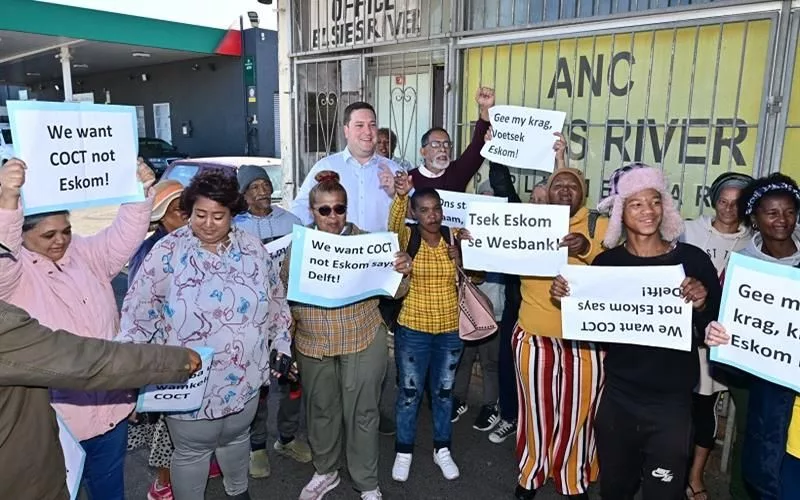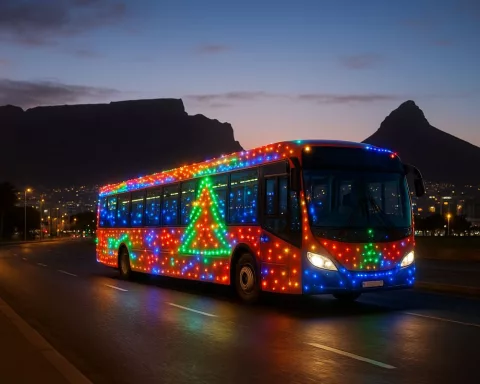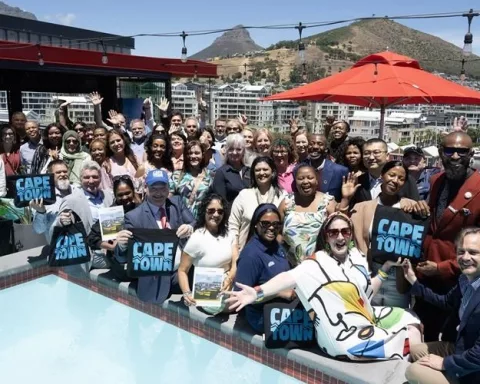The City of Cape Town’s pursuit of Eskom’s energy zones has hit a roadblock with Eskom withdrawing from negotiations, but Mayor Geordin Hill-Lewis remains undeterred and is urging citizens to sign a petition supporting the city’s efforts. The city aims to provide reliable and affordable electricity to all residents and reduce dependence on Eskom, transitioning to carbon-neutral energy from a diverse range of suppliers by 2050. Despite setbacks, the city is committed to extending its electricity supply network to all residents and improving infrastructure maintenance.
The City of Cape Town’s pursuit of Eskom’s energy zones has hit a roadblock with Eskom withdrawing from negotiations. However, Mayor Geordin Hill-Lewis remains undeterred and is urging citizens to support the city’s efforts by signing a petition. The city aims to provide reliable and affordable electricity to all residents and reduce dependence on Eskom. The long-term goal is to transition to carbon-neutral energy from a diverse range of suppliers by 2050.
Shaking Things Up
In a recent turn of events, Mayor Geordin Hill-Lewis and the City of Cape Town have witnessed a significant blow in their bold pursuit to extend the city’s electricity supply jurisdiction. South Africa’s public electricity utility, Eskom, has abruptly halted ongoing dialogues about transferring its control areas to Cape Town’s administration. This unpredictable development has not merely thwarted the City’s progress, but it has also ignited a renewed determination within its leadership.
The City of Cape Town has been involved in high-level negotiations with Eskom in an effort to take over the latter’s control regions within the city. These talks were carried out in a spirit of cooperation, with the city readying itself to hire consultants to help with the transition. However, Eskom’s sudden withdrawal from the discussions has temporarily put the city’s plans on hold.
In a letter to Mayor Hill-Lewis, Eskom’s General Manager Mbulelo Yedwa explained that although the proposal for transferring control areas was considered, it didn’t receive the backing from Eskom’s executive team. Citing business operational needs, Eskom decided it was in its best interest to retain its assets, rather than selling or transferring them.
Undeterred by Obstacles
Mayor Hill-Lewis remains undaunted despite this roadblock. During an open session at Elsies River Civic Centre, he reassured the anxious residents that the city wouldn’t give up on its efforts to incorporate more of Cape Town into its own electricity supply network. He also encouraged citizens to demonstrate their backing by signing a petition in favor of the city’s acquisition of Eskom’s control areas.
Gaining control over Eskom’s areas is a crucial aspect of Cape Town’s strategy to shield its residents from load-shedding and provide them with reliable electricity. The aim is to progressively shift away from the expensive power supplied by Eskom and consider more cost-effective alternatives. Before these recent incidents, the city had productive discussions with Eskom’s then CEO, Andre de Ruyter. The city had even initiated monthly meetings to track progress and was all set to bring in consultants for comprehensive transfer scenarios.
However, the new Eskom leadership under CEO Dan Marokane seemed less receptive to the idea of the transfer. While this latest development is indeed a setback for Cape Town, it underscores the residents’ frustration with service standards in Eskom-controlled areas. Reports of prolonged power interruptions with scarce updates from Eskom have been growing, leading to dissatisfaction among the affected communities.
Pursuing the Vision
The city’s objective is to extend its supply network to all residents, promising them reliable services and better infrastructure maintenance. The city has planned investments to the tune of R4bn for improving the city’s electricity grid over the next three years. Concurrently, the city aims to reduce its dependence on Eskom and switch to more affordable energy sources.
Despite Eskom’s recent stance, Mayor Hill-Lewis is set on continuing discussions about its control areas. His goal is to persuade Eskom to at least allow a consultant-led evaluation of potential transfer scenarios, including infrastructure, staff, and customer transitions.
Mayor Hill-Lewis has consistently written to Eskom’s successive CEOs, urging a resumption of negotiations. The city’s long-term goal is to distribute electricity directly to all customers in Cape Town, including those located in Eskom-controlled regions. As a part of Cape Town’s Energy Strategy, the city aims to transition from unreliable and costly Eskom energy to reliable, economical, carbon-neutral energy from a diverse range of suppliers by the year 2050.
Presently, about two-thirds of Cape Town’s electricity customers receive services directly from the city, with the remaining third being serviced by Eskom. The city intends to conduct a comprehensive financial and technical feasibility analysis before altering control areas, to ensure affordability and quality of service for all customers.
Galvanized by Support
Mayor Hill-Lewis has urged citizens to sign a petition supporting the city’s control of electricity services in Eskom-controlled regions. He believes that this show of public support will strengthen the city’s position in negotiations with Eskom and bring them a step closer to achieving their energy strategy.
In the face of challenges, the City of Cape Town and its resolute Mayor Hill-Lewis show no signs of backing down. Their unwavering commitment to providing reliable and affordable electricity services to their citizens remains solid, and they are prepared to confront any future obstacles head-on.
What is the City of Cape Town’s pursuit in terms of electricity supply?
The City of Cape Town aims to provide reliable and affordable electricity to all residents, reduce dependence on Eskom, and transition to carbon-neutral energy from a diverse range of suppliers by 2050.
What setback has the City of Cape Town faced in its pursuit of Eskom’s energy zones?
Eskom has withdrawn from negotiations with the City of Cape Town about transferring its control areas to the city’s administration, which has temporarily put the city’s plans on hold.
What is Mayor Geordin Hill-Lewis’ response to Eskom’s withdrawal?
Mayor Hill-Lewis remains undaunted and is urging citizens to demonstrate their support by signing a petition in favor of the city’s acquisition of Eskom’s control areas. He is set on continuing discussions about the transfer and plans to persuade Eskom to at least allow a consultant-led evaluation of potential transfer scenarios.
What is the city’s long-term goal in terms of electricity supply?
The city’s long-term goal is to distribute electricity directly to all customers in Cape Town, including those located in Eskom-controlled regions. As a part of Cape Town’s Energy Strategy, the city aims to transition to reliable, economical, carbon-neutral energy from a diverse range of suppliers by the year 2050.
What is the current electricity supply situation in Cape Town?
About two-thirds of Cape Town’s electricity customers receive services directly from the city, with the remaining third being serviced by Eskom.
What is the city’s plan for improving its electricity grid?
The city has planned investments to the tune of R4bn for improving the city’s electricity grid over the next three years. The city aims to extend its supply network to all residents, promising them reliable services and better infrastructure maintenance.











